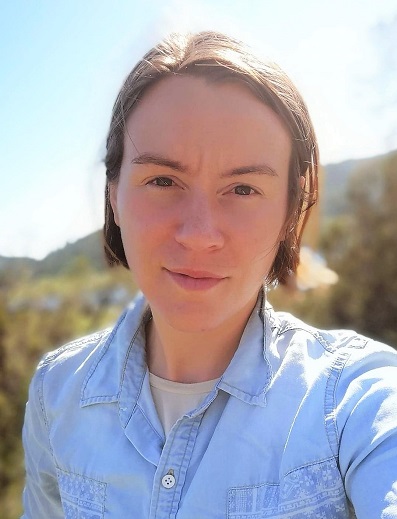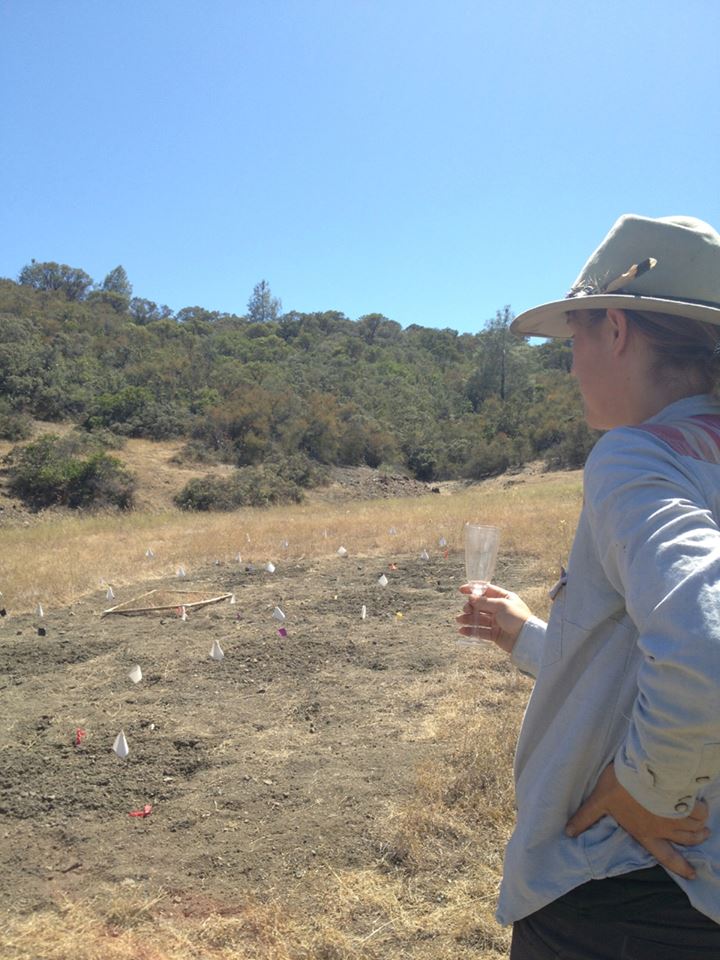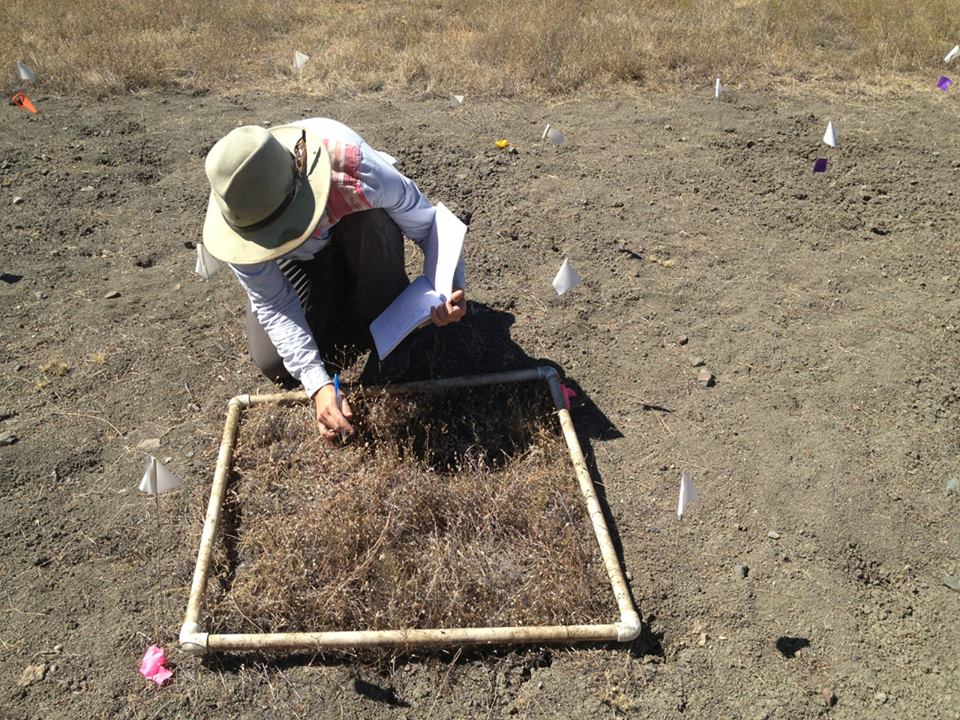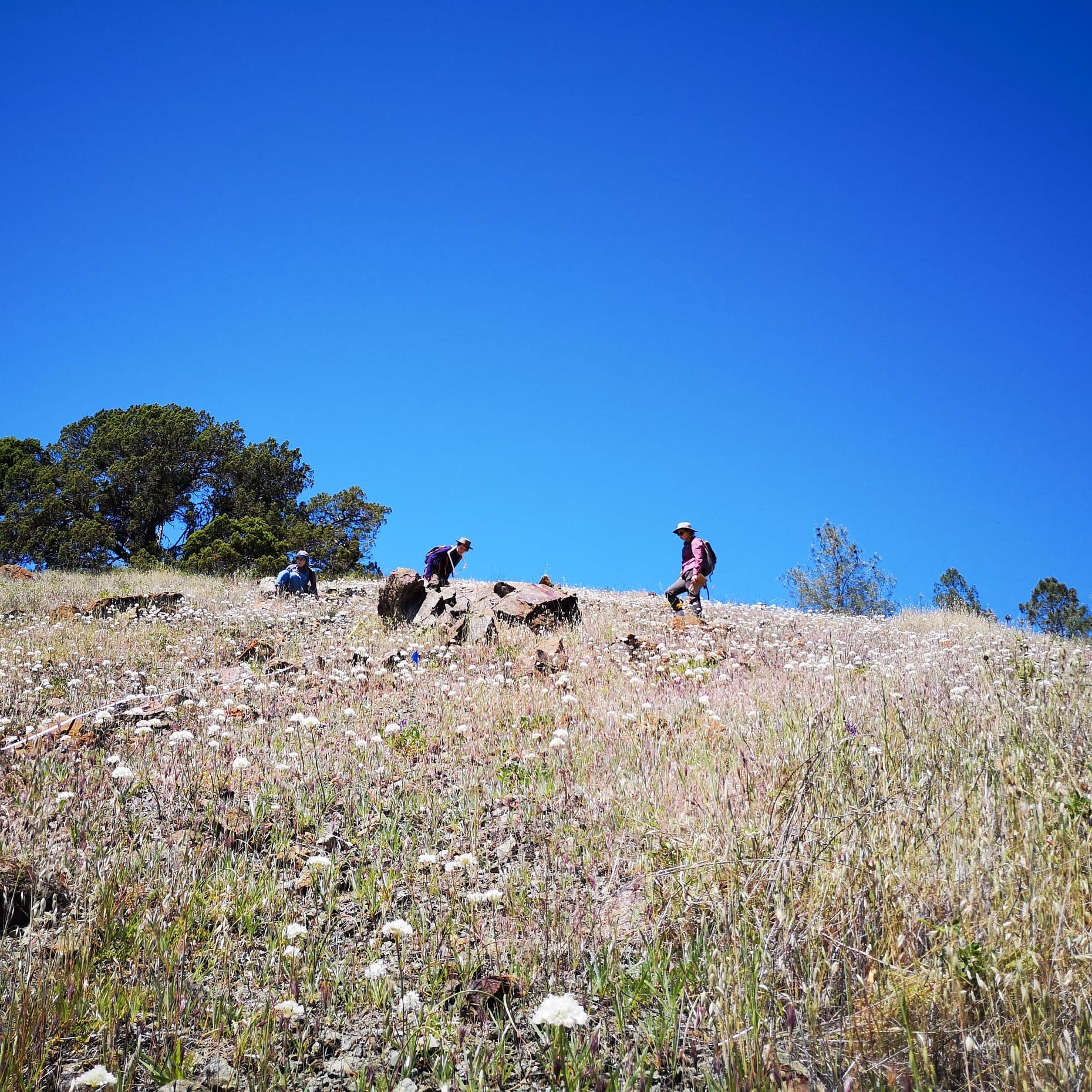About the department:
I work out of the Biodiversity Research Centre (BRC) at the University of British Columbia, in the Department of Zoology. The BRC is a physical space that houses researchers from multiple departments all with common interests in understanding the causes and consequences of biodiversity, both from ecological and evolutionary perspectives. In many ways, the BRC functions more like a synthesis centre than a traditional department. It’s a dynamic, fun environment for research.
About the research:
My lab studies the ecology and evolution of species coexistence in spatially-structured landscapes – how historical abiotic environments, competitive interactions, and dispersal have shaped how species interact with each other and their environments, and the outcome of those interactions for the distribution of biodiversity.
How do you/will you approach mentoring new lab members?
The number one question most prospective graduate students ask is, “What’s your mentoring style”? In my mind, the answer to that question depends on the student. Every individual has unique strengths, individualized goals, and new skills to be developed. Every individual learns differently and finds different levels and forms of feedback most effective (which also changes with career stage). My job as a mentor is to identify those strengths, goals, and learning opportunities – to get to know the student well enough to figure out what kind of mentorship would work best for them given their goals, and to work as much on further building up existing strengths as anything else. No two students should leave my lab having had the exact same experience or skill set.
When was your first Evolution Meeting, and how did it affect your career?
My first Evolution meeting was only recently, in August of 2018 in Montpellier. As a community ecologist, the Ecological Society of America meetings are my usual go-to, which is a real shame because there clearly are so many research parallels between ecological principles evolutionary biologists use and the evolutionary principles ecologists use – I hope to attend many more Evolution meetings in the future to strengthen these links first for myself, integrating them more fully into my lab’s research, and then hopefully to biodiversity science as a field. Let’s get out of our silos!
Do you teach evolution? What is the hardest concept to teach?
The first course I’ve taught at UBC is a second year Fundamentals in Ecology course all Science students are required to take. Although the course covers a broad range of ecological processes (e.g., island biogeography, metapopulation dynamics, species coexistence), throughout, the course covers how evolutionary hypotheses relate to the ecological concepts. As examples, we invoke global-scale macroevolution and biogeography to explain latitudinal gradients of biodiversity, character displacement in the context of niche differentiation, and phylogenetic relatedness to explain patterns of species coexistence. I also like to point out areas where more integration between ecology and evolution is needed – that many theories and concepts in ecology have recently been revised in the literature, and the opportunity that exists to integrate these new ideas into evolutionary thinking. The biggest challenge to student learning is the complexity that comes with the contingency that ecology and evolution impose on each other – that unlike in other courses with a clearly defined answer, in ecology, the answer can really change if evolution is happening. It certainly makes marking harder if students try and consider all possibilities!
What one piece of advice would you give to a starting graduate student?
Don’t see yourself as “just a student”. Young researchers often have a fresh perspective and question assumptions that someone more senior might overlook. Everyone starts somewhere and has something to contribute. Reach out to people. Take up space. Want to meet Dr. Joe Shmoe? Email them! Arrange to meet them at Evolution. Have a neat idea of how two research themes might align? Organize a symposium! Have a research idea and want to collaborate with a new research group? Pitch it to them! Don’t be afraid to fail – if it doesn’t work out, you’ll learn from it. And ultimately, you’ll emerge with memorable experiences, a killer CV, a solid network of colleagues, and ideas to keep your research program moving full steam ahead.
Do you remember making any mistakes as a trainee; how did you recover?
Not sure if I would call this a mistake vs. a lack of experience at the time, but there’s a lesson here: the #1 thing I used to be the worst at was giving research talks. I would get up there, turn red, shake, draw a blank, stress about it for weeks before and after. I once flat out stopped talking and left half way through my slides. Now this is interesting because today I’d say giving talks is high on the list of things I’m very good at – I actually enjoy giving them! It’s a great rush. I’ve won awards for it. So how’d things turn around? In my case, I took very active steps to get over this problem. First, I signed up for nearly every opportunity to speak that came up. Second, I’d give myself challenges – for example, in my PhD I gave a full research talk to the graduate student community using slides I had not looked at in at least a year (I warned the audience first). This challenged me to think on my feet in possibly one of the most uncomfortable, public ways I could think of – anything after that felt less uncomfortable by comparison. I think the important lesson is not to avoid or run from things that make you uncomfortable – embrace and overcome them! Champion them! You can do it.
 Rachel Germain
Rachel Germain

